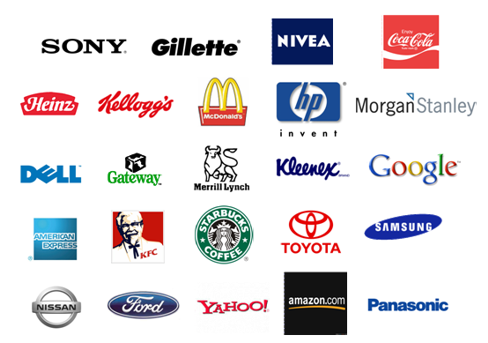So just how does a brand come to stand out in such a crowded field? Here is where things get a little murky, as the factors that go into a brand’s success are intangible, such as trust and value. In the simplest form, a consumer agrees to select a particular brand over others based primarily on its reputation/promise. These promises can be implied or explicitly stated. Price, accessibility or other factors can lead a person to occasionally stray from her brand, but until something “better” comes along, she will inevitably return to the product she perceives as right for her.
In “Beyond Trust,” the authors point out “the buyer may even pay a higher price for the goods or services because of [her] commitment, or passive agreement, to buy the brand.”
The point is, for a brand to stand out and rise to the top, the company or person behind it— think Tiger Woods—needs to promise the buyer it will do what it says it will do. In other words, the product will deliver what is promised of it.
Small business help
When most people think of brands, the first thing that usually comes to mind is the multi- national, global names that dominate everyday life. But, the fact is, even the most powerful brands cannot exist if not for what happens at the local level.
Think of it this way, there are different categories or levels when it comes to the whole concept of branding. These types of branding strategies, all designed to build equity in the name are also referred to as family branding, individual branding and combination branding. For example, brands can represent a manufacturer, such as Toyota or Kodak, or they can represent a particular product within that brand, such as Toyota’s Camry or Kodak’s Kodachrome—referred to by experts as a dealer brand. Theses two can also be tied together to represent a single brand, such as Coca-Cola or Kleenex.
Taking it a step further, there are brands similar to these but only known in a particular market or region, or a company may market a product under different names depending on the region. For example, think of the most popular brand of mayonnaise. People east of the Rockies will say Hellmann’s, while those on the west side will cite Best Foods. The thing is, while each started out separately, since 1932 they have been produced by the same manufacturer.
As such, brands of all sizes are important for small businesses as they not only give the store a way to differentiate itself from companies that only sell commodity items, they give customers an immediate impression of the operation.
From this, it is imperative for dealers to select the right brands for their individual market(s). Just because you carry a well- known product does not guarantee success. Think of the mayonnaise example. Say you move from California to New York and open a store. Because of your connections, you can get Best Buy mayonnaise sent to you cheaper than for what you can get Hellmann’s. The problem is, unless someone walks in who happened to live out west, no customer will identify with the brand and most will walk out and go down the street to get the jar with a Hellmann’s label.
Along with the products being carried, brand power comes from the store itself and the people who work for it. Just about everyone can point to a successful small business with a strong reputation in the town it serves, yet go outside of their local market and these operations fall into obscurity?
These businesses have established long-standing relations with local citizens based on an outstanding reputation. This reputation, like that of product brands that have gained prominence, has been built on trust.
And, due to the recession, BrandZ says the trust factor, paired with recommendation, has risen to a new standard in helping brands “realize their full power.”
A 24-country study revealed brands having the highest “TrustR” score enjoyed:
- A customer bond 10 times greater than the average.
- The likelihood of being purchased nearly seven times greater than the average.
- The likelihood of short- term, market-share growth.
Having a successful brand is one thing, but experts warn once loyalty is established a company needs to work “to maintain its presence with consistent quality and competitive responses to new market entrants and existing competitors.”
That is why experts and business coaches recommend small business aligns with brands that are well known by their customers. In addition, offer products that may be well known/ respected within the industry and allow you to enhance your local name and reputation.
Fortunately, within the flooring industry there are numerous brands retailers, contractors, designers, specifiers and others can offer that fit one or both of those billings—end user and/or industry recognition.
The companies/brands high- lighted around this story are just a small representation of the various options available to our readers. While some brands cross through all or some of the flooring categories, there are many that have carved out a successful reputation focusing on a single product category.
-Matthew Spieler

